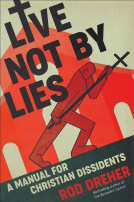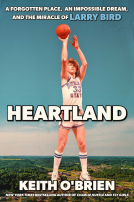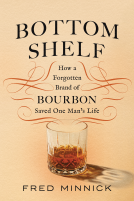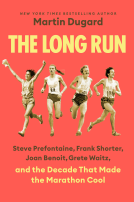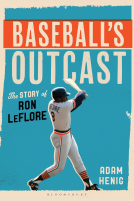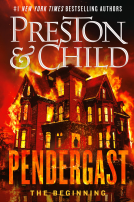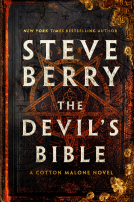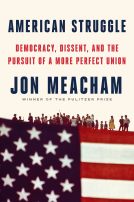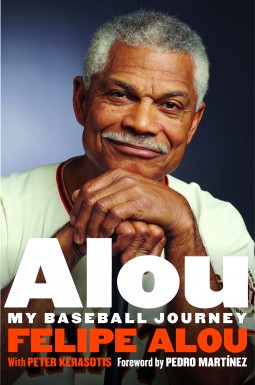
Alou
My Baseball Journey
by Felipe Alou; Peter Kerasotis
This title was previously available on NetGalley and is now archived.
Send NetGalley books directly to your Kindle or Kindle app
1
To read on a Kindle or Kindle app, please add kindle@netgalley.com as an approved email address to receive files in your Amazon account. Click here for step-by-step instructions.
2
Also find your Kindle email address within your Amazon account, and enter it here.
Pub Date Apr 01 2018 | Archive Date Mar 30 2018
Talking about this book? Use #Alou #NetGalley. More hashtag tips!
Description
In this extraordinary autobiography, Alou tells of his real dream to become a doctor, and an improbable turn of events that led to the pro contract. Battling racism in the United States and political turmoil in his home country, Alou persevered, paving the way for his brothers and scores of other Dominicans, including his son Moisés.
Alou played seventeen years in the Major Leagues, accumulating more than two thousand hits and two hundred home runs, and then managed for another fourteen years—four with the San Francisco Giants and ten with the Montreal Expos, where he became the winningest manager in franchise history. Alou’s pioneering journey is embedded in the history of baseball, the Dominican Republic, and a remarkable family.
Advance Praise
“Sometimes the people who don’t crave attention are the ones who deserve it the most. That’s Felipe Alou. He is one of the best and most caring teammates I ever had. I learned from him what leadership is all about and what it means to be a man. I admired him greatly, first as a fan, then as a teammate, and now, most importantly, as a friend. Felipe has lived a Hall of Fame life, and in Alou you’ll learn why.”—Joe Torre
“It’s an honor to have Felipe Alou as my friend and especially to have him in my career and in my life as a mentor. He blazed a trail for Latin Americans that few men could’ve accomplished, and he did it with class and character. His story, and what he overcame and achieved, will embarrass and enlighten, sadden and inspire, anger and uplift. Felipe Alou is one of the best ambassadors for baseball and an even better ambassador for the human race.”—Reggie Jackson
“If Alou was only about Felipe Alou’s legendary baseball career as a player and manager it would be an important read, but it’s much more. Alou not only captures an extraordinary life; it delivers compelling insights into life’s realities. As the first to go from the Dominican Republic to Major League Baseball—both as a player and a manager—Felipe Alou opened the way for his brothers Matty and Jesús, his fellow countrymen, and for scores of other Latin Americans. If you don’t know much about Felipe Alou, this book will convince you that he is as special as anyone who has ever worn a Major League uniform. For those of us who know and admire him, reading Alou makes us appreciate that he is even greater than we imagined.”—Tony La Russa
“Felipe Alou played with Willie Mays and managed Barry Bonds. He played a Major League Game in the same outfield with his two brothers, and then saw his son become a Major League star in his own right. He was the first Dominican born and raised to make it to the Major Leagues, opening the door for scores of others. Felipe Alou has a rich and vivid story to tell, and here it is.”—Bob Costas
“The big, sprawling, international baseball life of Felipe Alou is a grand story all its own. But Alou becomes much more than a baseball book in the hands of coauthor Peter Kerasotis. His storytelling skills give Alou the depth and cultural richness that take you beyond the diamond.”—Tom Verducci, Sports Illustrated senior writer, three-time National Sportswriter of the Year, and best-selling author
“I was a Minor League manager when I heard the booming voice and felt the huge persona that is Felipe Alou, and I thought I was in the presence of a baseball god. Then I got to know this remarkable man, a man who made my path to managing in the Major Leagues easier when he didn’t have to.”—Buck Showalter
Available Editions
| EDITION | Other Format |
| ISBN | 9781496201522 |
| PRICE | $29.95 (USD) |
| PAGES | 336 |
Links
Average rating from 11 members
Featured Reviews
 Kyle E, Reviewer
Kyle E, Reviewer
A glimpse into the life of Felipe Alou, both inside and outside of baseball. Alou discusses his career in the majors as a player, life growing up in the Dominican Republic, insight into his favorite players, personal demons he faced throughout his life, his managerial philosophy, and his outlook an events that have occurred throughout his time in baseball. The most interesting aspect of the book is his brief discussion about the demise of the Montreal Expos. Alou could have focused several more pages to 1994 season through his unceremonious termination in 2001. This book will especially appeal to fans of Dominican born players, the Montreal Expos, San Francisco Giants, and to a lesser extent, the Atlanta Braves.
 Phil B, Educator
Phil B, Educator
This is the biography of Dominican MLB all-star, Felipe Alou. The biography is very interesting and written very well. As a 40-year old baseball fan, all of the history that Felipe recounts is fascinating to read about. He was the teammate of many HOFers and also had the chance to coach several HOFers. This was one of the better baseball biographies I have read. The only complaint I have is the tone toward the end of the book- Felipe starts sounding proud and unreliable in his recounting of events that are slanted in his favor.
Usually a man who became a major league baseball player and manager will share that he always dreamed of making it to the majors. Not so for Felipe Alou. The man who became the first player from the Dominican Republic to play in the major leagues, to play in the World Series and to manage in the major leagues, originally was going to be a doctor. Then through a strange turn of events in the 1955 Pan American games, a young Alou found himself on the baseball team, where he caught the eye of scouts. The rest is history – and told by Alou in this memoir of his life both in his homeland and in the United States.
Alou was often portrayed as a gentleman during his playing days with the San Francisco Giants and Atlanta Braves and even more so during his managerial career, mostly with the Montreal Expos but also his last two years back in San Francisco. The stories he shares are told in that manner with one notable exception: his recollections of the racism he faced while being a pioneer for Latin American ballplayers.
While there are many stories about the racism directed at black players in the early days of integration in baseball, the plight of the Latin American player is not as well known. However, it is was just as humiliating and degrading and reading about someone experiencing this firsthand, as Alou did, is very powerful. He talks about Latin players going through this even worse than black players, as the latter players were able to stick together and retreat to friendly neighborhoods. When they were doing this, the black players, according to Alou, would exclude their Latin American teammates, making them feel even more isolated.
When approached by Sport magazine in 1963 to talk about these experiences, Alou had also been fined by commissioner Ford Frick for playing in an exhibition series in his homeland. Incensed by this and wanted to tell everyone about the racism Latin players faced, he wrote an article for the magazine’s November edition, which is shared verbatim in the book and certainly the most powerful passage in the entire volume.
This isn’t to say that the book is all about this topic Indeed, Alou spends a great deal of time talking about his two brothers who also played in the major leagues, Matty and Jesus. The three brothers made history when they appeared in a game together in all three outfield positions and also were the three batters who came to bat in one inning – both firsts for the major leagues. Alou speaks with some pride about his accomplishments on the field with the Giants and Braves, but downplays it much of the time.
Then he talks about his experience with the Montreal Expos as both a coach and later the manager of the team, becoming the first man from the Dominican Republic to manage in the major leagues. Here Alou looks back fondly at his time in Montreal as it is very clear that he has a special place in his heart for the city and it broke when the Expos left. He blames the ownership for this. He also looks back warmly at the Expos team that is still talked about today, the 1994 team with so many young stars whose season of glory was cut short by a strike that wiped out the season and the World Series that year. I do wish there was more in the book about that team, but at least Alou shared some great memories of that group.
Finally, Alou shares much about his homeland, not just his family life but also about the political strife of the Dominican Republic in the 1960’s. While interesting, this section took a little bit away from the rest of the book for me as it seemed to be more a statement about his political beliefs in his homeland than simply background information. This fits with his writing in the rest of the book where he shared his opinions of what he felt strongly about (including his belief that the National League should adopt the designated hitter) but I believe it could have been shortened.
Nonetheless, this was a very good book that fans of the Giants, Expos and baseball in general will enjoy. If a reader is interested in the history of Latin American players in the game, Alou’s experiences will certainly be of interest to that person.
I wish to thank University of Nebraska Press for providing a copy of the book via NetGalley in exchange for an honest review
 Linda P, Reviewer
Linda P, Reviewer
This is a powerful memoir of Alou's life as a Dominican, as well as his trailblazing MLB baseball career as a player and manager. Alou provides many fascinating insights into his life in baseball and outside of baseball.
At times controversial, Alou doesn't hestitate to back off on addressing the many issues facing Latin, and black, ballplayers in the 1950s and 1960's.
Absolutely top notch!! Highly recommended.
 Edwin H, Reviewer
Edwin H, Reviewer
What an amazing life Felipe Alou has had. In ALOU, it is a treat to hear about his life as a baseball player, baseball manager, and proud brother, father and uncle to his family's lineage in baseball. Such a cherished baseball entity, Felipe takes the reader though his upbringing and career where Alou is constantly proud and honored to be a pioneer in representing the Dominican Republic in baseball. As his accomplishments pile up into the 1970's, Felipe Alou ends one facet of his baseball life as a player and jumps right into the next chapter; managing in baseball that carries him into the 21st century. He has met countless baseball personalities and as a successful player and manager has been a part of so many unique and fantastic experiences.
The way Alou writes about his life comes from a place of honor and humbleness in that he was the one that got to experience so many great things. Being human, Alou doesn't shy away from describing his miscues, like having been married four times and creating a rift with one of his brothers the he admits was his fault and he was too proud to admit it for a long time. Alou also has some great stories about certain players and games that might have otherwise time might have forgotten. Another thing Alou heads right into are topics that others might shy away from, but Alou isn't afraid to be controversial and by doing so, enlightens and educated the reader. He touches on racism in baseball in the 50's, 60's and even 70's. He also spends time discussing the inner workings of franchises, particularly the Montreal Expos, and some of the questionable dealings he had and shady choices that the franchises made. Those topics and others aren't avoided or tiptoed around by Alou, who seems more that happy to show what's behind the curtain and yet does it with minimal bias and anger; its just how he perceived it.
Felipe Alou is a rare person, and in ALOU, the reader is reminded of that. Through all of his accomplishments, of which there are many, what makes Felipe Alou stand above so many others is his gutsy, proud and passionate approach to life.
 Budd B, Media/Journalist
Budd B, Media/Journalist
The name "Alou" isn't quite specific when it comes to a baseball book.
Which one is it about? Felipe Alou, who was a very solid player throughout the 1960s and then became a successful manager? How about his brother Matty, merely a former batting champion? Or another brother Jesus, who had a good-sized career too? Finally, there's Moises, Felipe's son who had several fine seasons in the majors.
The answer of the question, if you didn't look at the byline or the photo, is Felipe. He's come out with his second autobiography, "Alou." The first one was written back in the 1960s, so it's fair to say this baseball lifer has an update coming to him.
Let's get one point straight here. Felipe's mother had a maiden name of Alou, while his father was a Rojas. The mother's name came last in the Dominican Republic, where the family resided, so Felipe was an Alou as a baseball player. A relative, Mel Rojas, avoided that little problem, and eventually was a pitcher on one of Felipe's managed teams in Montreal.
You might not think of Felipe Alou as a pioneer, but he truly fits that description. Alou was one of the the first major league players to come from Latin America, which is quite an achievement. Adding to the luster of that statement was that he grew up quite poor in a small town in the D.R. The living space was about the size of a typical bedroom by American standards, and some of it had a dirt floor. There wasn't much money for fun and games, so Felipe had to improvise. He was good at the baseball part of it, but thought he would become a doctor. However, when the Giants waved a little bonus money at him, the family could not afford to turn it down.
The best part of the book concerns Alou's struggles in the early years of his career. He was first sent to Louisiana, where in the late 1950s it was more important to segregate the team than it was to win. Alou was sent to Florida from there, and took out his frustrations on opposing batters. Baseball readers know the drill - separate houses, less-than-equal opportunity to play, etc. But it still hurts to read such material, even from a distance of 60 years.
Alou had more such problems once he got to San Francisco. Manager Bill Rigney never gave him a chance either. When Alou looked around the Giants' roster, he saw it overflowing with talent in the early 1960s. Orlando Cepeda and Willie McCovey were just coming into their own, and Alou's brothers were following him to the majors as well. Oh, some guy named Willie Mays was patrolling center field, and it's fair to say no one was going to get playing time at his expense.
Somebody had to go, and Felipe went to Milwaukee - which eventually headed to Atlanta. Alou was good there too, as he received some MVP votes and was a part of some good but not Braves teams. Injuries eventually slowed him down to the point where he bounced around a few teams and retired in the mid-1970s. Some of the statistical comparisons are made to rank him with Amos Otis, Chet Lemon and Dusty Baker, and those work pretty well.
Even so, he never would have had a second book had his baseball career not had a second act. Alou worked his way up the ladder as a minor league manager and major league coach. Just when you thought he'd be out of chances, he landed the Montreal Expos' job in 1992. There he guided the most unlucky team in history by some standards. The Expos of 1994 were a great squad, apparently headed for a championship when labor troubles stopped the season in early August. There was no World Series that year, no chance to prove how good the team was. Montreal broke up the squad over the winter, leaving us wondering. Alou is wondering himself - that team might still be in Montreal had it not been for that labor dispute.
Alou managed the Expos through 2001, took a year off, and went back to the Giants as skipper at the age of 68 in 2003. The Giants had two good years and two bad ones, and finally he was done. Here he has some stories about some of his players, such as Pedro Martinez and Barry Bonds. You can tell that he earned the respect of his players, treating them like men but was no pushover. In a different set of circumstances, Alou probably is in the Hall of Fame - but he had to play the hand he was dealt.
Those circumstances will prevent some casual baseball fans in America from reading this. There aren't many stories of great triumphs. Still, "Alou" ought to be a big hit in baseball-crazed sections of Latin America. He has an inspirational story to present, and he has tales of such Latin baseball heroes as Roberto Clemente and Juan Marichal - not to mention the rest of the family - as well. Those who specialize in Latin baseball or in Expos history should give this an extra star. But it's a comfortable read for the rest of us.
 Janet P, Reviewer
Janet P, Reviewer
This book is an absolute delight. The autobiographies of sports figures can often be dull & self-serving but Alou and his co-author have created a book that is elegant & honest.
Alou pulls no punches when he talks about his childhood poverty and his struggles when he first began playing in the US. Even though he is honest, the book is free of the bitterness you might expect.
I also loved thatch was so frank about his difficulties as a player and in his opinion of other players. I loved his generous assessments of so many of them. His love of baseball and of his country, the Dominican Republic, came out throughout the book.
As one of the first Latino players in baseball and black to boot, Alou encountered racism in many forms. He began playing when Jim Crow laws were in effect in the South. He endured difficulties at times from his managers, the Press, & from the Commissioner himself. He shows unclearly how difficult things were for him.
But what I loved most was how the book shows us that Alou is a man who has reflected deeply on many things: his country, baseball, racism, and his own life.
Felipe Alou, you're my hero!
 Casey W, Reviewer
Casey W, Reviewer
I received a free Kindle copy of Alou: My Baseball Journey by Felipe Alou and Peter Kerasotis courtesy of Net Galley and University of Nebraska Press, the publisher. It was with the understanding that I would post a review on Net Galley, Goodreads, Amazon, Barnes and Noble and my fiction book review blog. I also posted it to my Facebook, Twitter, LinkedIn and Google Plus pages.
I requested this book as I have read a number of biographies on baseball players, but this is the first devoted to Felipe Alou that I have read. It is the first book by Felipe Alou and Peter Kerasotis that I have read.
I found this book to be somewhat interesting, but not as dynamic as I hoped it would be. The choice of a different collaborator by Alou may have helped in this regard.
Felipe Alou has had a long and stories baseball career. Starting out as a child in the Dominican Republic, playing for several major league teams including one game where he started with his two brothers Matty and Manny in the outfield, to becoming one of the most respected managers in baseball. The book describes many of the highlights of his career, but not in a captivating way.
I recommend this book in particular if you are a San Franciso Giant or were a Montreal Expo fan. For others, it may not be worth the time to read.
 Concert K, Reviewer
Concert K, Reviewer
Alou is about baseball great Felipe Alou in his own words. The intro to the book is by none other than Pedro Martinez. Felipe and 2 of his brothers (Matty and Jesus) were the only 3 brothers in the major leagues to share an outfield. Felipe is often credited as the first Dominican to reach the major leagues, but he says that it was Ozzie Virgil Sr who did it before him. The book is interesting and has a lot of great stories and facts about Felipe and his family. His last name is actually not Alou, but Rojas. He never faced a lefty pitcher until he was a professional baseball player because in the Dominican Republic being left handed was considered a curse so they were all right handed. (Or if they weren't, tried to be.) He has a 4th brother, Juan, who stayed home to protect his home in the Dominican Republic and ended up becoming a pretty great civil engineer. There is a lot of information about Felipe's family as well - he has 11 children and has been married 4 times. Tragically one of his sons died while he was diving into a pool by breaking his neck and Felipe talks about what it was like to find out about that while he was playing ball and having to fly straight home to the funeral from a game. This was a really interesting read and I enjoyed it.
I received a free e-copy of this book in order to write this review, I was not otherwise compensated.
 Andrew S, Reviewer
Andrew S, Reviewer
Felipe Alou has quite the story to tell spanning more than half a century of involvement in professional baseball. Alou was the first player to go straight from the Dominican Republic to the major leagues, as well as the first native of the Dominican Republic to manage in the major leagues. He's also the patriarch of one of the most prominent baseball families the sport has seen, playing with two brothers in the majors, and managing his own son and nephew. Alou's book covers his whole story, from a poor young boy in the Dominican who wanted to become a doctor, to a young player in the United States, to a major league manager and elder statesman of the game. Whether as a player or manager, Alou's career path has brought him into contact with many of the greats of the game, including Willie Mays, Roberto Clemente, and Barry Bonds, and these and many others make appearances in Alou's enjoyable memoir.
The book is not just about baseball though. There is much to learn about Dominican dictator Rafael Trujillo and his reign of terror, as well as the realities of confronting segregation in the US in the 1950s.
Felipe Alou's is a baseball trailblazer for the people of the Dominican Republic, and his memoir is sure to be enjoyed by baseball fans everywhere.
Thanks to NetGalley for providing a copy of the book in exchange for an honest review.
 Pat L, Reviewer
Pat L, Reviewer
I grew up watching Felipe Alou and then his two brothers playing baseball during the 60’s and 70’. I also remember him as the manager of the Montreal Expos. I did not know about his life from or on the Dominic Republic. That was very informative, along with the racism he faced in the 50’s and then after talking about the experiences he had as a Latin player. A 1963 article in Sport magazine would talk about what he saw and what he felt, he would also be fined by then Baseball Commissioner Ford Frick. He would devote an entire chapter to this. He goes into the loss of his son, the time he spent with Willie McCovey, Roberto Clemente, Orlando Cepeda and others. I really liked how he went into talking about the 1994 Expos team and the player from that team. He also gives his opinion on the DH rule and how he thinks that the National League should adapt the rule. I found this to be a very good book and really enjoyed the read.
Readers who liked this book also liked:
John Kotter; Holger Rathgeber
Business, Leadership, Finance, Nonfiction (Adult)
Silvia Moreno-Garcia
Historical Fiction, Literary Fiction, Sci Fi & Fantasy

